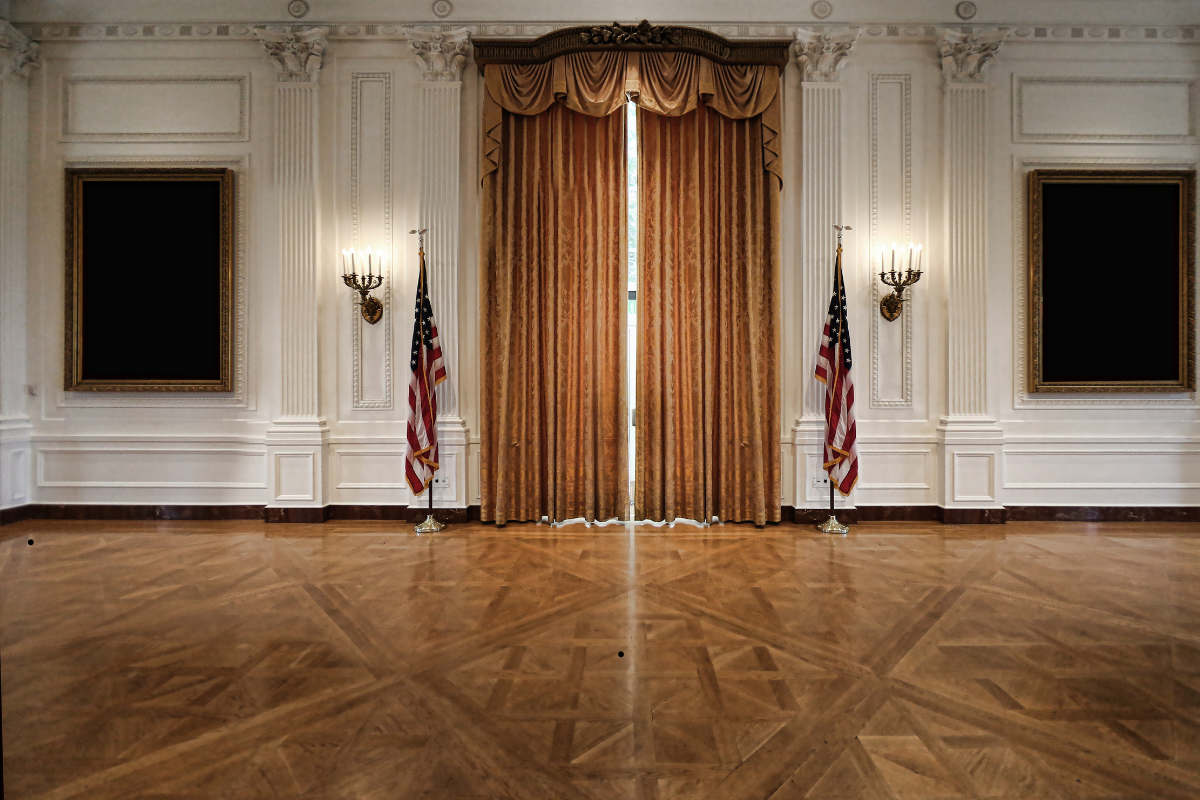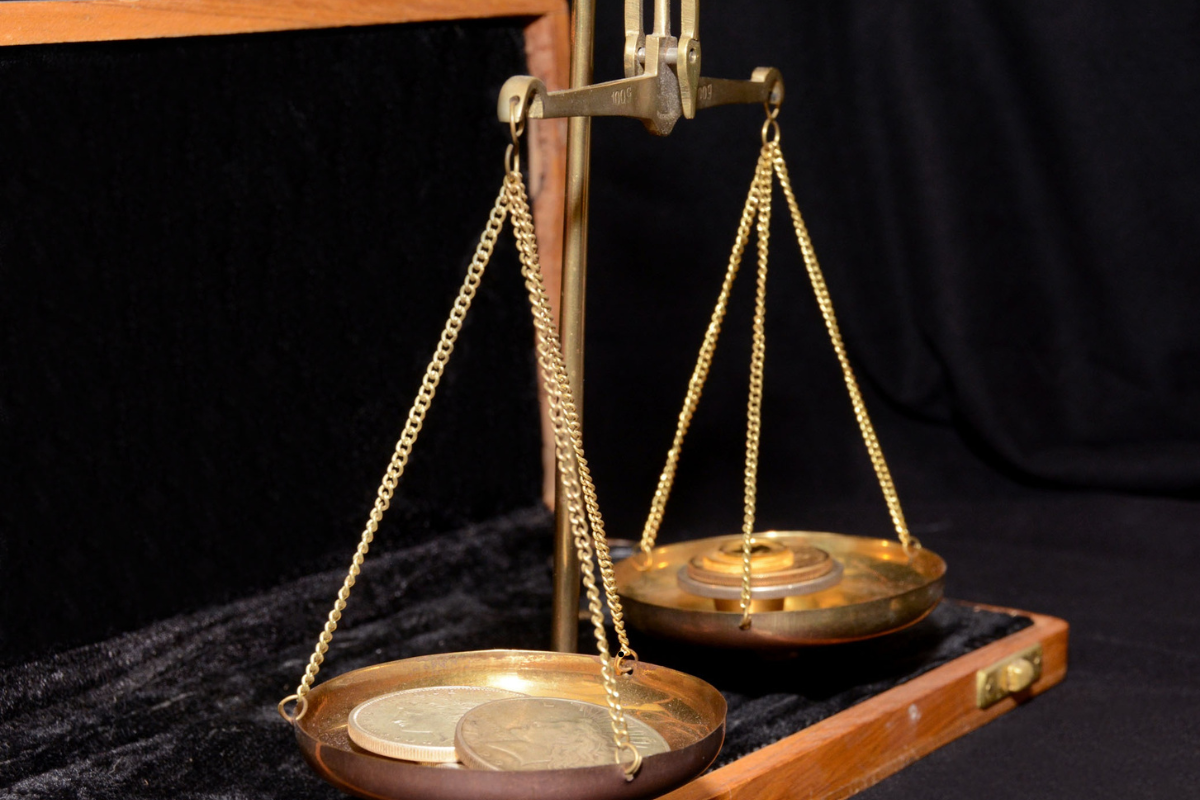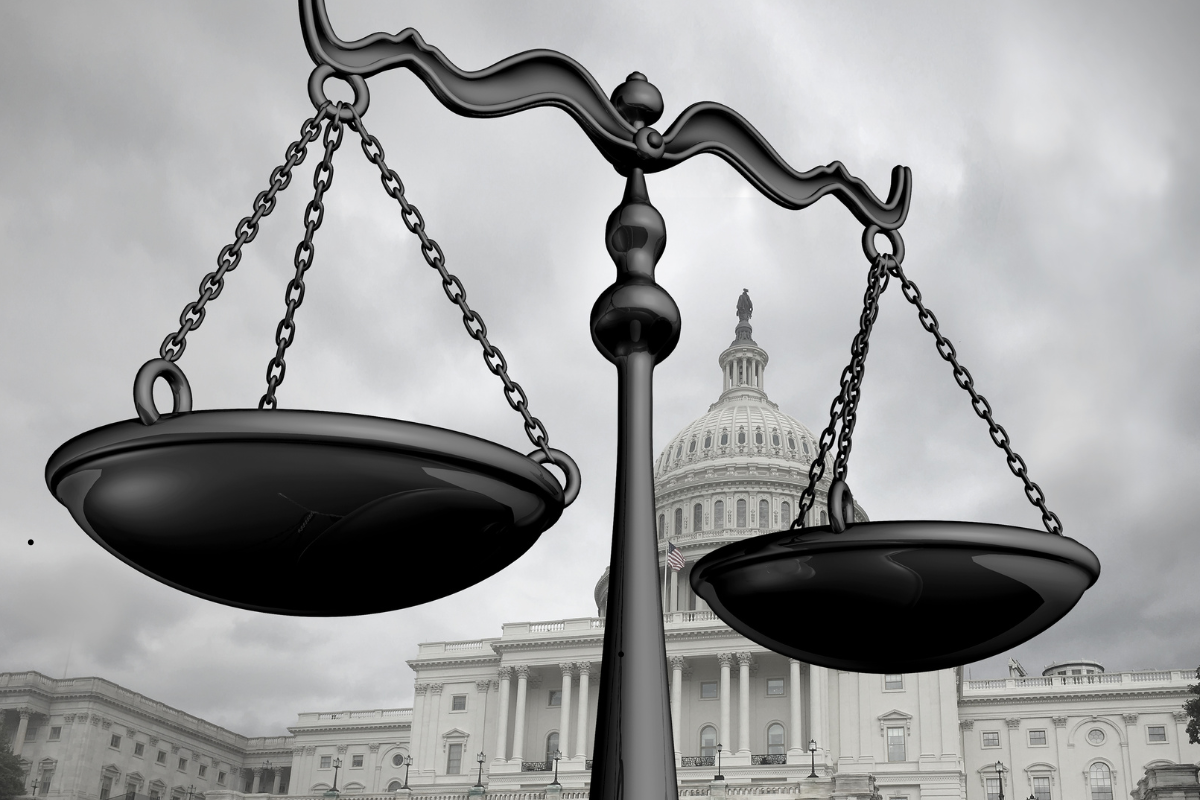Reflection and Choice
Last week we introduced our readers to The Federalist, that collection of essays essential to understanding the animating ideas and principles of American Constitutionalism. One of the distinctive features of American political thinking is its elevation of practical reasoning over theoretical reasoning. Americans, especially at that time, were not given to wild metaphysical speculation. Their approach to thinking was always grounded in experience, in the trial-and-error and back-and-forth of human interchange.
In a certain sense, our approach lacks context because we are not presenting the arguments of The Federalist side-by-side with the Constitution’s opponents. We will, however, have frequent recourse to the essays that go by the name of “Anti-federalist.”
It will not be our habit to take one essay at a time, but there are some essays that are so essential to our understanding of Publius’ efforts that they require extra care. Federalist #1 is an example, not only because it was the first essay published, but because in it Alexander Hamilton lays down much of the groundwork not only for what follows, but for what he believes to be essential for America if it was ever to take its place on the world stage.
Part of the background was the perceived “failure” of the Articles of Confederation, in effect since 1781 and thought by many at the time to be ineffectual to its purposes. The drafters of that document were in many ways a “Who’s Who” of American politics, but in keeping with the American tendency to experimentation, the alleged weaknesses of the Articles became cause for reform. Still, the Philadelphia Convention convened in the summer of 1787 “for the sole and express purpose of revising the Articles of Confederation,” not to replace them. For this reason, critics of the Philadelphia Convention believed that its enlarged mission represented an effective overthrow of the extant government.
Briefly: what were these “weaknesses”? For one, the national government possessed no executive authority, meaning that the legislature often had little means for enforcing its decisions. The national government lacked any real taxation authority, making it difficult to fund, for example, efforts at collective security. Any changes to the document required the unanimous assent of the states, meaning pesky Rhode Island could effectively exercise a veto. Major pieces of legislation required a ⅔ majority of the states. In short, the document’s critics claimed, the government under the Articles lacked “energy,” the deficit of which would mean that the fledgling country would not claim its rightful place on the world stage, nor would it become “the friend of commerce and industry.”
History being written by “the winners,” we tend to accept the conceit that the inadequacy of the Articles required the Constitution, forgetting that a) there were those who agreed that the Articles were deficient but thought the Constitution an overcorrection; and, b) there were a great many defenders of the Articles. As the august historian and writer “Bill Kauffman” noted, the most rhapsodic defense of the Articles came from the South Carolinian
Anti-Federalist Rawlins Lowndes, who said the Articles were "a most excellent constitution...sent like a blessing from Heaven" that had "given to us the enviable blessings of liberty and independence." In our time, William Appleman Williams, in 1976, called for "evoking and using the Past to create a Future that honors our primary commitment to self-determination. We must return therefore to the Articles of Confederation. That document offers us a base from which to begin our voyage into a human Future; a model of government grounded in the idea and the ideal of self-determined communities coming together as equals when and as it is necessary to combine forces to honor common values and realize common objectives."The Constitution’s critics fired their opening salvos soon after the Convention adjourned in September of 1787 and sent the document to the states for their ratification. Hamilton, the delegate at the convention most inclined to centralize power, had argued, according to Madison’s Convention notes, that “no amendment of the Confederation, leaving the States in possession of their Sovereignty could possibly answer the purpose.” Referring positively to some dictators from the past, Hamilton allowed that the passions and ambitions they displayed, dedicated to principles of unity and greatness, could only be exercised by vesting “a compleat [sic] sovereignty in the general Government.”
Hamilton’s June 18th speech, as recorded in the Convention notes, is one of the most consequential in American history and, for those already suspicious of the Convention’s intentions, one that confirmed their worst fears. The tendency toward centralization was not predestined but a matter of design, and the Constitution’s critics feared a system less transparent, less responsive, and less representative than the one they had. Representatives, they feared, would soon lose touch with their constituents and advocate for a foreign set of interests; for then, interest was directly tied to place. Each community had its own distinct set of interests and needs, best served at the local level where eyes could be kept on the street as well as politicians. America, if it was to be anything, was to be a community of communities.
Hamilton took up the challenge of responding to the critics, and the first essay of The Federalist probably did little to allay their fears. He began by acknowledging “the full experience of the insufficiency of the existing government” and insisting that the “existence of the UNION” was at stake. He then offered up a word that must have scandalized some readers: he claimed that what was at stake was “the fate of an empire, in many respects, the most interesting the world has ever known.”
For most of political history there were two types of political regimes: the city and the empire, and you could be one or the other but never both. Republicanism was the preferred form for cities, while empires operated mainly on principles of power and might. The American experiment, it was widely held, was to be an experiment in republican liberty, not in imperial ambition. Was Hamilton simply cavalier in his use of language, or was he pivoting away from the consensus? What kind of empire was he proposing? The answer, I believe, rested in his assessment of European politics, but this wouldn’t become clear until later papers.
In any case, Hamilton articulated an early version of what we call “American exceptionalism” — the idea not only that America has a special purpose in the world, but that it is not bound by the cycles of rise and fall that historically mark empires. Those cycles meant that the life of political societies were hemmed in by fate, in the face of which humans were powerless. Hamilton offered a contrary view, for “it seems to have been reserved to the people of this country to decide, by their conduct and example, the important question, whether societies of men are really capable or not, of establishing good government from reflection and choice, or whether they are forever destined to depend, for their political constitutions, on accident and force.” Choosing against the Constitution, he continued, would “deserve to be considered as the general misfortune of mankind.”
Any debate and vote on the fundamental system of government will, of course, be a kind of existential crisis. Our elections work when the stakes are low, in part because our deepest disagreements remain hidden. The Convention had already raised the stakes by offering a whole new government, but Hamilton ratcheted them upwards: are you on the side of reason or hapless reaction? It was, as the historian J.G.A Pocock argued, a “Machiavellian moment” that decided not only the fate of the nation, but whether its leaders were simply the playthings of fate.
Even if, as Hamilton argued, the outcome wasn’t predetermined by impersonal forces, the idea that people would choose one way or the other based on a careful and unbiased commitment to the public good was something more to be “wished for, than seriously to be expected.” Indeed, since the Constitution “innovates upon too many local institutions” you could expect that a “class of men in every state” would fear a “diminution of the power” and its accompanying perks that are a “consequence of the offices they hold under the state establishments.” In other words, the opponents to the Constitution were trying to protect their privileges.
But then Hamilton caught himself. If opponents were motivated by venial interests, might it not be possible that defenders of the Constitution were as well? Indeed, “It would be disingenuous to resolve indiscriminately the opposition of any set of men into interested or ambitious views, merely because their situation might subject them to suspicion.” He acknowledged the possibility that even if opponents were driven by self-interest, “even such men may be actuated by upright intentions” and still have compelling arguments. Self-interest had to be thought of as a persistent and irresolvable part of the human condition, one that resided alongside and within our capacity for “reflection and choice.” This is why you could “see wise and good men on the wrong as well as the right side of questions, of the first magnitude to society.” Note that Hamilton did not allow respect for his opponent to muddy his conviction about right and wrong; rather, the awareness that even if people are wrong about fundamental questions, we shouldn’t immediately conclude that this makes them bad people, and this realization furnished us with “a lesson of moderation,” for neither should our belief that we are on the “right side” of the question lead us to conclude that we are free of “ambition, avarice, personal animosity, party opposition, and many other motives, not more laudable than these.”
Hamilton thus did something extraordinarily important in this first essay. To begin, he offered us a complex view of human nature. By human nature we mean in part the fixed essence of what human beings are that will not admit to alteration. We are a mix of good and bad: self interest, but also reason; a tendency toward evil, but a capacity for goodness; more than beasts, but less than angels; a desire for justice, but an inclination toward injustice. This realization injects humility into our proceedings with one another, and one lesson we learn is that even if we acknowledge the importance of humility this is far from a guarantee that we will exercise it. How to balance this realization we might be wrong or operating from suspect motives with our commitment to principle becomes a bedeviling problem of political life. Too much commitment to principle and we become vicious and intolerant ideologues; too much humility and we become feckless and incapable of standing up for anything other than standing up for nothing.
Secondly, Hamilton provided us with a kind of guide for navigating our differences with one another, and the higher the stakes the more necessary the strategy. Members of the other party, then as now, would scream at the top of their lung “the justness of their opinions” in the hopes of increasing “the number of their converts,” which they would accomplish “by the loudness of their declamations” and “the bitterness of their invectives.” They would mischaracterize the positions of their opponents, often attributing those positions to ill will and bad faith. Those in our party, Hamilton averred, would believe they were motivated by an “enlightened zeal” for “the public good.” But even while he allowed this, Hamilton could not but paint the opponent’s apparent and self-claimed “enthusiasm [for] liberty” as “infected with a spirit of narrow and illiberal distrust.” Indeed, “a dangerous ambition … lurks behind the specious mask of zeal for the rights of the people.” Instead, counterintuitively, Hamilton suggested that those zealous for a vigorous, firm, efficient, and energetic government were the greatest friends of liberty (I say counterintuitive because the two greats threats to personal liberty are other persons and the government, the latter of which possesses great power; henhouse, meet fox). Further: Hamilton suggested that his argument resulted solely from “the evidence of truth.” As for the balancing of conviction and interest, Hamilton would “affect not reserves, which I do not feel” and “will not amuse you with an appearance of deliberation, when I have [already] decided” what is right.
I’d put it this way: Hamilton’s theory is better than his practice, and his apparent hypocrisy shouldn’t dissuade us from embracing the recommended approach of being charitable toward our opponents and suspicious of ourselves, democracy not working real well when we indulge our tendency to be charitable toward ourselves and suspicious toward our opponents. For all our talk about humility, we exercise very little of it. In my experience on college campuses, the more people talk about it in principle the less likely they are to exercise it in practice. But in Hamilton’s disavowing the role of interest and ambition in his own thinking and his endorsement of his own “good intentions,” he does accomplish something important: he separates the argument from the one making the argument, for “my motives remain in the depository of my own breast” while “my arguments will be open to all, and may be judged by all.” In our day, given as we are to arguing purely on the basis of ad hominems, the idea of judging arguments on their own merits rather than simply casting aspersions on those who make them would be a welcome tonic.
To return to Hamilton’s argument: the Anti-federalists had immediately offered specific criticisms to the Constitution: its powers of taxation, the danger of a standing army, the pernicious possibilities of the commerce and “necessary and proper” clauses, the empowering of the executive, and others that will become more clear in the course of things. Hamilton responds broadly:
I propose, in a series of papers, to discuss the following interesting particulars:
THE UTILITY OF THE UNION TO YOUR POLITICAL PROSPERITY … THE INSUFFICIENCY OF THE PRESENT CONFEDERATION TO PRESERVE THAT UNION … THE NECESSITY OF A GOVERNMENT AT LEAST EQUALLY ENERGETIC WITH THE ONE PROPOSED, TO THE ATTAINMENT OF THIS OBJECT … THE CONFORMITY OF THE PROPOSED CONSTITUTION TO THE TRUE PRINCIPLES OF REPUBLICAN GOVERNMENT … ITS ANALOGY TO YOUR OWN STATE CONSTITUTION … and lastly, THE ADDITIONAL SECURITY WHICH ITS ADOPTION WILL AFFORD TO THE PRESERVATION OF THAT SPECIES OF GOVERNMENT, TO LIBERTY, AND TO PROPERTY.In some ways, we inhabit a Machiavellian moment of our own, one where we feel that the fate of the country is at stake (we are once again in the middle of THE MOST IMPORTANT ELECTION OF OUR LIFETIME) in the sense that we experience no principle of unity and thus no possibility of union. Our disagreements about fundamentals have been brought to the surface and connected to the machinations of power. Even though the principle of union may be “deeply engraved on the hearts of the great body of the people in every state,” we have lost much of our capacity to live together peaceably. The principle of secession has been resurrected and rumors of an impending civil war have increased. Our Constitution, so resilient for so long, seems strained to a breaking point by federal power and court decisions and debt and public expectations. Perhaps by revisiting the great debates of our previous Machiavellian moment we can be reminded that this project was never going to be easy or without serious contestation, and that we have it in ourselves to withstand and even thrive in the midst of the pressures, would we but figure out ways to turn down the heat. For better and for worse, once change is instituted, people soon become used to it.
Director of the Ford Leadership Forum, Gerald R. Ford Presidential Foundation
Related Essays




